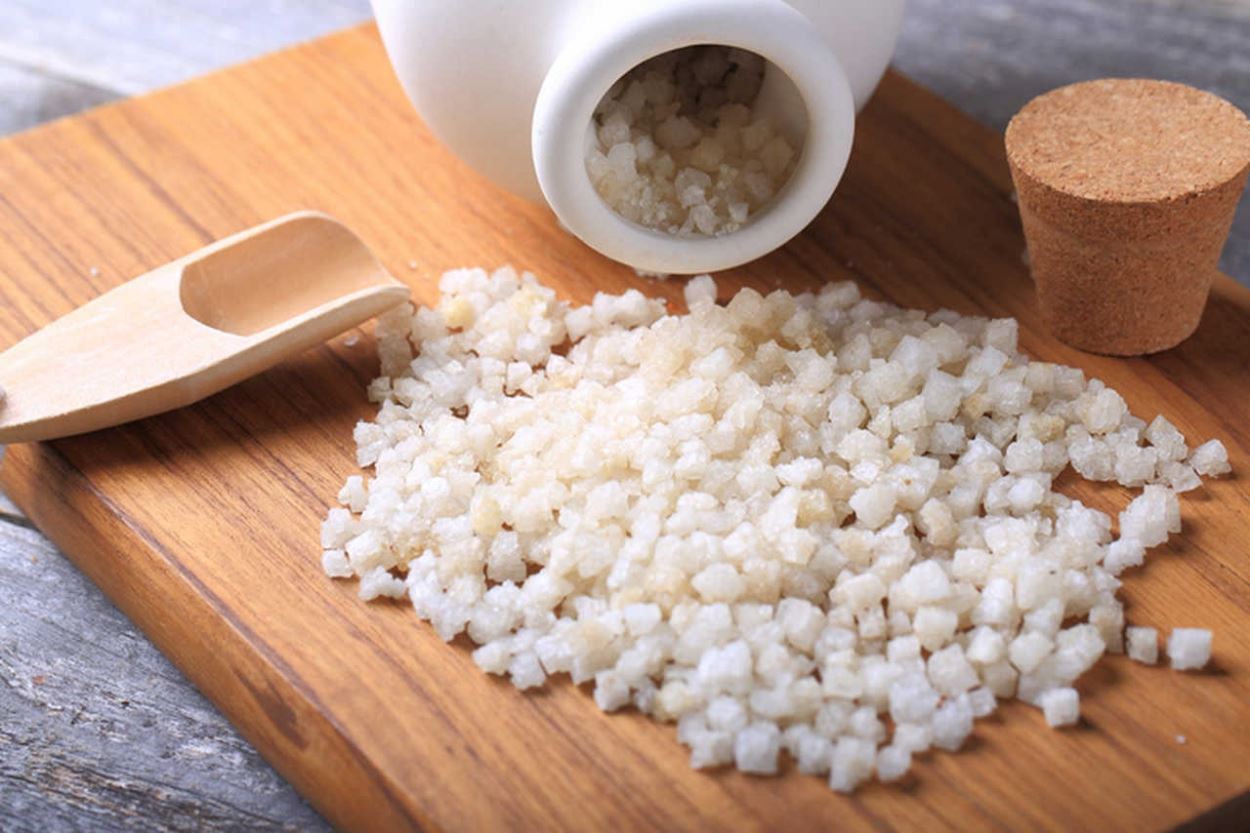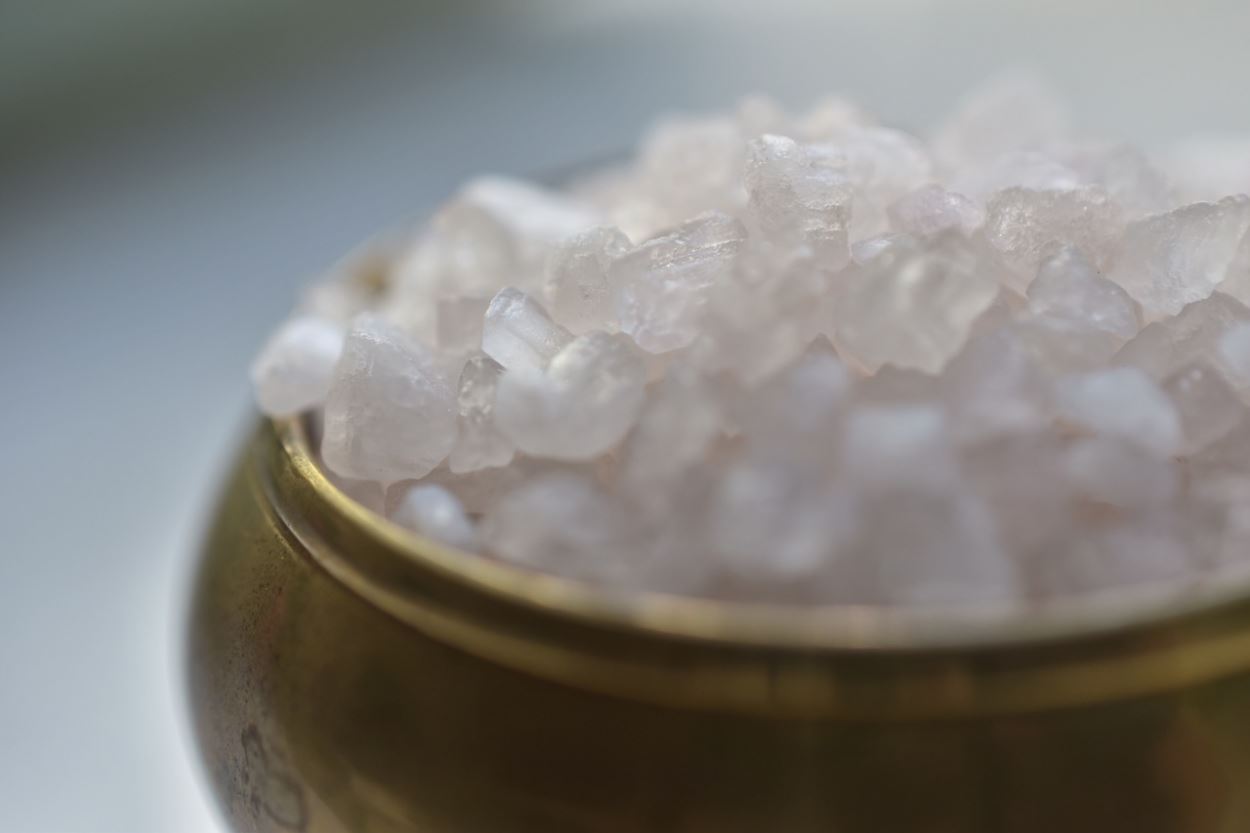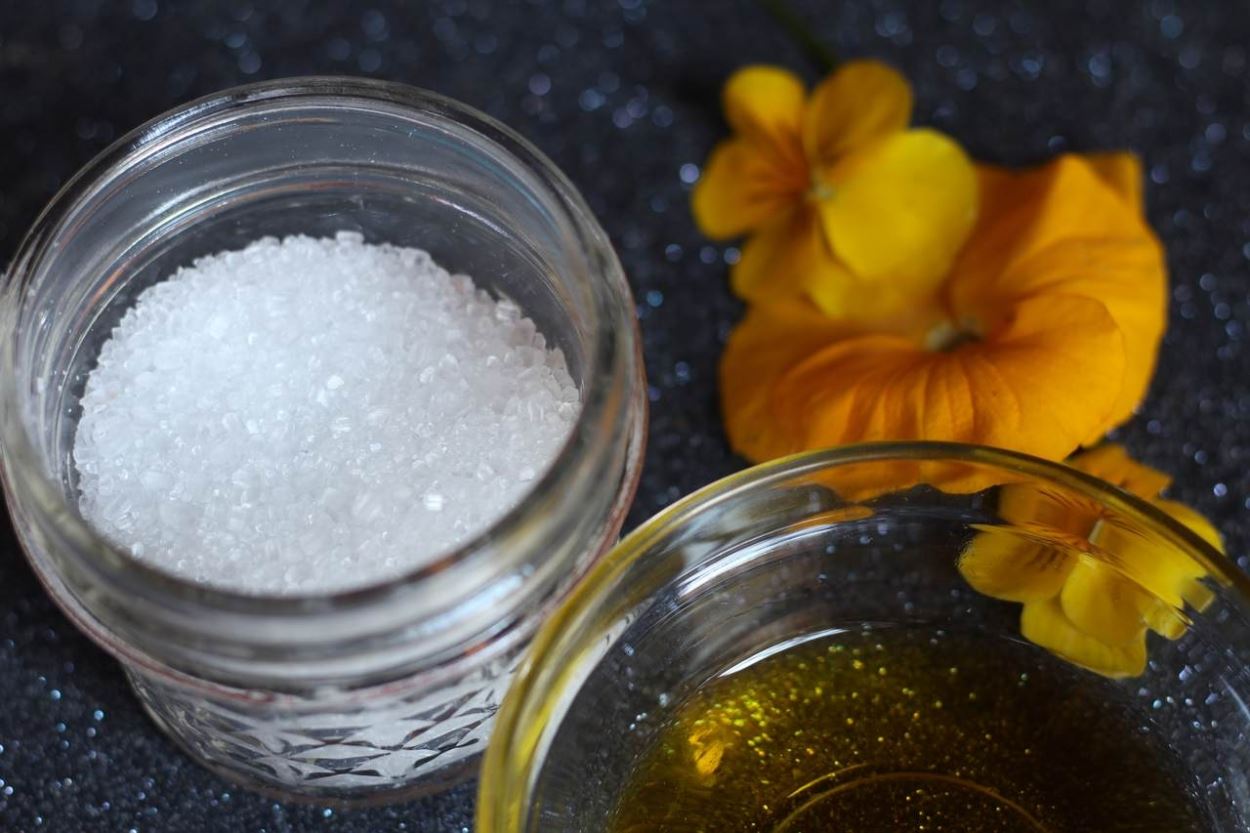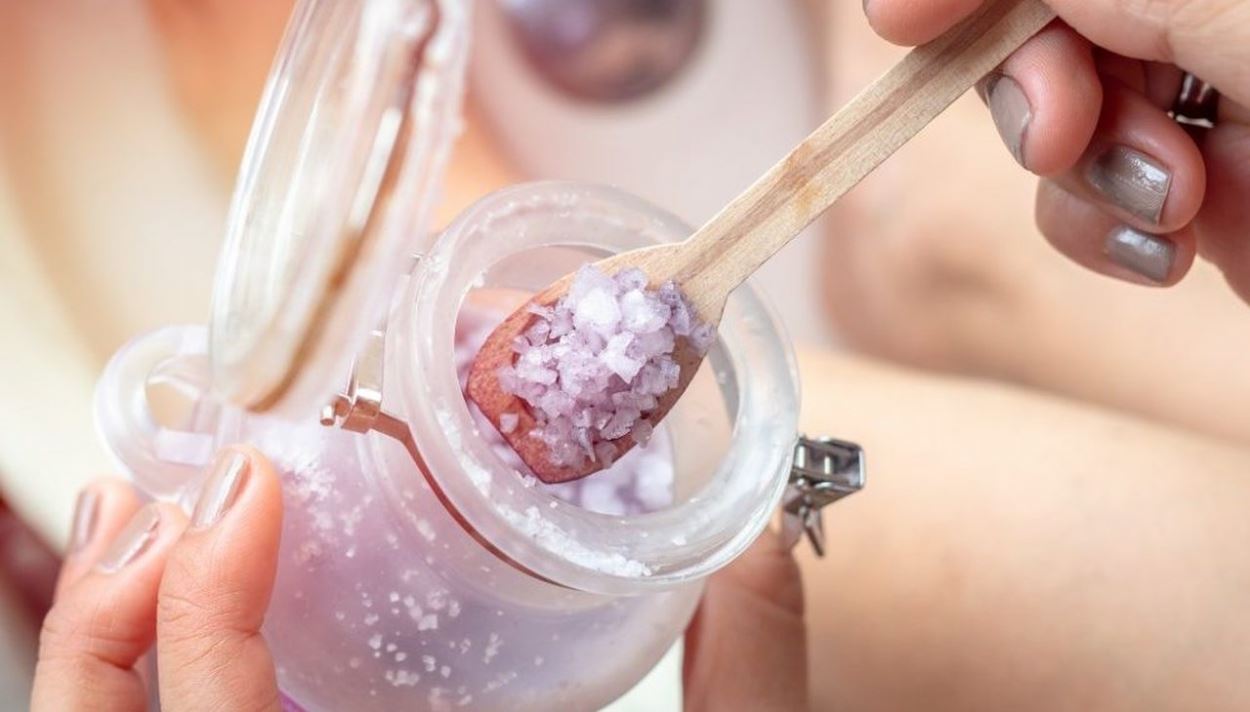What Is The Difference Between Epsom Salt and Sea Salt
2020-10-28(147887)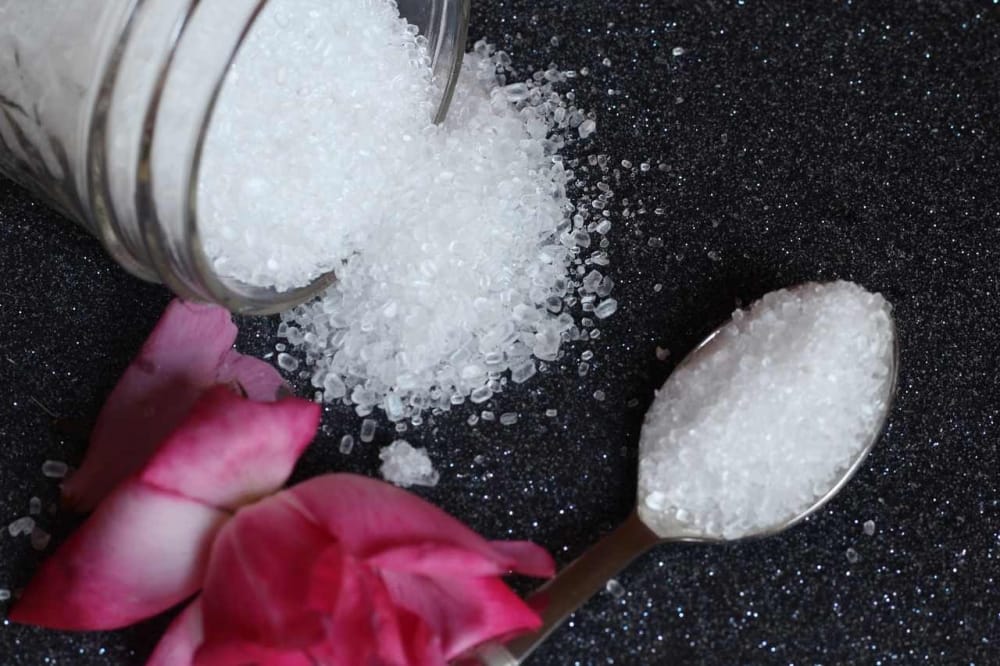
What comes to your mind first when you think about salt? Humans have been using natural salts and minerals for beautification, natural healing, and medicinal purposes for ages. And while salt brings to mind standard table salt, there is actually a wide range of different types of salt.
When it comes to relaxational and soothing purposes, there are two most known types of salt: Epsom salt and sea salt. They may look identical, but there are certain differences between them. Both Epsom salt and sea salt become natural healers in baths to soothe away aches and ailments. Also, they become a beneficial addition to beauty routines when mixed with essential oils.
In this article, We will discuss the question, “what is the difference between Epsom salt and sea salt” and everything you need to know about the two. Let’s begin with the definition of Epsom salt.
What Is Epsom Salt?
Epsom salt is popular as a natural remedy for ailments and pain. If you wonder “What is the use of Epsom salt,” the answer is: People use Epsom salt to ease their ailments such as stress and muscle soreness.
Also known as magnesium sulfate, Epsom salt is a chemical compound consisting of magnesium, sulfur, oxygen. You might be wondering why it is named ‘Epsom.’ It gets its name from the place it was originally discovered; the town of Epsom in Surrey, England.
Sea Salt vs. Epsom Salt
Many people use sea salt and Epsom salt for healing and soothing purposes, but have you ever asked yourself, “what is the difference between Epsom salt and sea salt?”
1. Chemical Difference
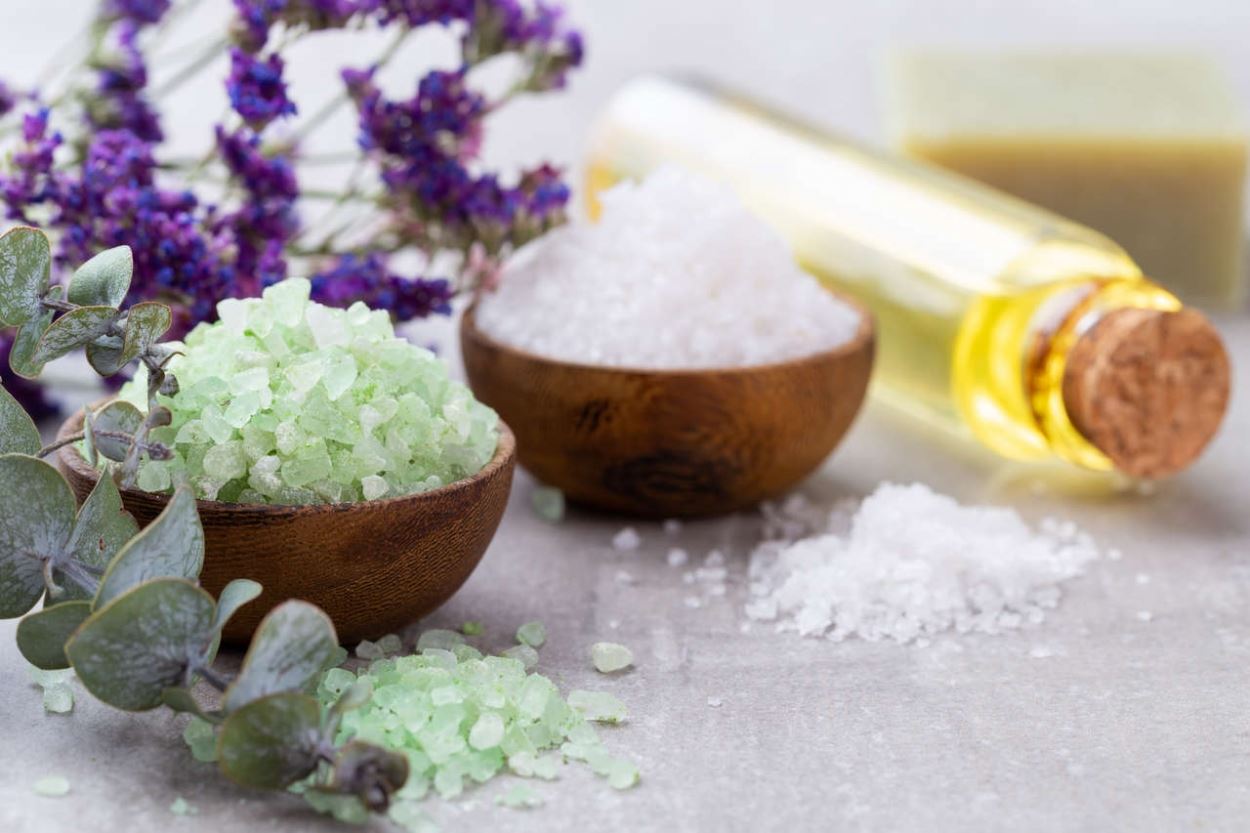
The major difference between Epsom salt and sea salt is that Epsom salt is not actually salt. Don’t let the ‘salt’ in its name deceive you. Epsom salt is, in fact, a mineral found in water containing magnesium and sulfate at high levels. The form of that mineral is crystallized like sea salt.
However, unlike sea salts, Epsom salt is made up of magnesium, sulfur, and oxygen. So, the chemical compound factor is what makes a key difference between Epsom salt and sea salt. While the active ingredient in salts is sodium chloride, Epsom salt does not contain it.
Then, why do we call Epsom salts ‘salt’? It is called salt due to its salt-like crystalline structure and other properties that are found in salts.
2. Structural Difference
We can answer the question, “what is the difference between Epsom salt and sea salt” by pointing out the structural differences of the two.
Obtained by evaporating seawater, sea salt is mostly made up of sodium chloride. However, depending on the source, it may contain varying trace minerals such as zinc, iron, and potassium. Due to ocean pollution, there may also be trace amounts of heavy metals like lead.
Structurally, sea salt is more absorbent, which makes it suitable to combine with essential oils. However, the hygroscopic structure of sea salt makes it a necessity to store it in cool and dry places. So, although you can use sea salt in the bath, it is fit to be stored in a damp environment like a bathroom.
Epsom salts, on the other hand, have a resilient structure, which means that you can store them in your bathroom cupboard.
3. Purpose of Use
Uses for Sea Salt
What is the difference between Epsom salt and sea salt? Their purpose of use differ, although they have similar uses as well.
Sea salts, especially Dead Sea Salt, which is harvested from the Dead Sea located between Jordan, Israel, and Palestine, are utilized in detoxification and beautification. They can be used to treat skin problems.
● Differently from Epsom salt, sea salt can be used to flavor and preserve food and as a substitute for kosher salt.
● Dead Sea Salts can be added to balms or oils to exfoliate and treat skin problems such as cellulite, small bumps, and dry skin. The grainy, coarse texture of sea salt helps heal blemishes and stimulate blood flow.
A lot of people have questions like, “What can I use if I don’t have Epsom salt? Or Can I use sea salt instead of Epsom salt?” Just like the aromatherapy experience you can achieve with Epsom salts, you can use sea salt for a similar experience by adding essential oils to sea salts.
● Sea salt bath vs. Epsom salts differ in various ways, however both can be preferred for a soothing bath. Add sea salt, scents, and essential oils to your bath for a relaxing effect.
● Use the sea salt and essential oils mixture to steam cleanse your face by adding them to hot water. It will help open the clogged pores and balance oil production.
● Moreover, you can use sea salts to get rid of any bacteria due to their alkalizing effects.
● Sea salts can also be used to relieve pain. Is sea salt anti-inflammatory? Yes, it is. That is why it has pain reliever properties for health problems such as Rheumatoid Arthritis and eczema.
Uses for Epsom Salt
Is Epsom salt the same as sea salt based on its uses? Although there are similarities between the two types of salt, they have distinctive properties.
● Epsom salt is anti-inflammatory just like sea sats.
● It can be used to treat cold and flu symptoms. Additionally, Epsom salts can be used to relieve sore muscles and itchy skin.
● Other than its pain-relieving uses, Epsom salts can also be added to beauty routines. It purifies pores, exfoliates skin. Moreover, some people use Epsom salts in float baths and sensory deprivation tanks.
The Difference Between Epsom Salt and Bath Salts
Apart from the question, “what is the difference between Epsom salt and sea salt” people also wonder the difference between Epsom salt and bath salts.
Epsom salt contains only naturally occurring minerals that we mentioned earlier; magnesium and sulfate. However, other bath salts may contain additional ingredients and chemicals that vary according to the brand.When compared, Epsom salts are more natural and have more affordable prices than bath salts.
Are There Different Types of Epsom Salt?
Chemically, all Epsom salts are the same. They are made up of magnesium and sulfate. Yet, there can be differences in manufacturing and packaging. Also, they may differ in “grades” which are given to define different applications of Epsom salts such as agricultural use or human use.
Bottom Line
As Koyuncu Salt, Turkey’s largest salt exporter, we tried to answer a popular question, “what is the difference between Epsom salt and sea salt” and compared the two types of salt. Basically, they differ in terms of structure, chemical compound, and uses.
However, if you are asking the question, “can I use sea salt instead of Epsom salt for bath?” then, yes you can. Both Epsom salt and sea salt can be used for beauty and health purposes. So, don’t forget to keep a box of each in case you might need them!
Wondering how to store salt long term? You might like our article, “Why and How to Store Salt on Long term.”




